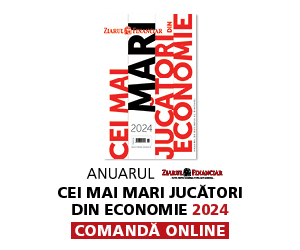The Bucharest Stock Exchange has lost almost 4 billion euros of its capitalisation over about four months of decline (February 10 - June 9), reverting to the level in the first trading sessions of this year.
This is one of the worst periods of time the Stock Exchange has been through over the last six years. At the end of the Friday session, the market capitalisation stood at 16.38 billion euros, compared with the 20.35 billion euro all time high reached on February 10. Approximately 2.45 billion euros have vanished from the Stock Exchange since early May alone, given that the market took quite a hit from the declines on the other European markets and from the halt of the capital inflows on emerging markets.
The losses of the top nine-most important companies on the Bucharest Stock Exchange since early May amount to nearly 2.15 billion euros. Petrom, the largest company on the BSE, shed some 950 million euros of its market value during this period, as its shares went down 10.6%. BRD, the second largest company in terms of capitalisation, lost 276 million euros, and Rompetrol Rafinare saw its value decline by 127 million euros.
Under the circumstances, the BET index, which gauges the performance of the ten-most important companies on the Stock Exchange except SIFs, lost some 9%, going down below the level at the end of the second day of trading this year.
SIF investors sustained the heaviest losses over the last four months, as the BET-FI index of the five financial investment companies was 27% lower after the trading session on Friday than at the end of April. SIFs are now trading at about the same prices as in October last year. Catalin Chelu, one of the biggest investors in SIFs, sold more than 1 million shares in SIFs through the companies he owns over the last few weeks. According to the latest regulations in force, no investor together with its affiliates may own over 1% in a specific SIF.
Brokers say declines in the past month and a half have occurred against the unfavourable circumstances on all the European capital markets, coupled with the bad domestic news.
"The most important factor to have contributed to the declines over the past few months is the high volatility of the neighbouring markets, which affects us, too. Internationally, we can see a strong migration of speculative capitals controlled by hedging funds and especially a halt in the capital inflows on the emerging capital markets," explained Adrian Manaila, chairman of Galati-based Eldainvest brokerage firm.
A number of bad domestic news overlapped with the foreign context, such as the news about the stake cap in SIFs, the delisting and the modification of the Fiscal Code, which caused uncertainty among investors. Under the circumstances, many investors have chosen to sit and wait for things to clear up and a new upward trend to occur.










































